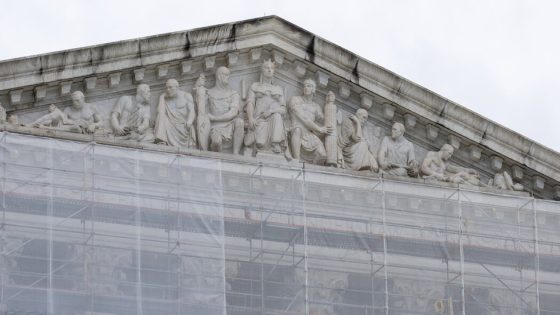The Supreme Court recently made a significant ruling regarding police accountability, rejecting a legal theory that limited lawsuits against officers using deadly force. This decision comes in the wake of a tragic incident involving an unarmed Black man during a routine traffic stop in 2016, highlighting ongoing concerns about police practices in the U.S.
- Supreme Court rejects restrictive legal theory
- Case involves police accountability for deadly force
- Focus on broader context of police encounters
- Justice Kagan emphasizes considering all circumstances
- Incident began with a routine traffic stop
- Officer stopped vehicle over unpaid tolls
On Thursday, the justices determined that courts must consider the broader context of police encounters, rather than just the immediate moments leading up to a shooting. Justice Elena Kagan emphasized that evaluating an officer’s actions requires a comprehensive understanding of all relevant circumstances. This ruling is crucial for future cases involving police conduct and accountability.
This ruling raises important questions about how police actions are judged in court. Will this lead to more accountability for officers involved in fatal encounters? The decision could reshape the landscape of civil rights litigation in the U.S. by allowing courts to consider a wider range of factors.
- Broader context in police encounters is now essential for evaluating force.
- The ruling may encourage more victims’ families to seek justice.
- Future cases could see increased scrutiny of police practices.
As the nation grapples with issues of police violence and accountability, this ruling could pave the way for more comprehensive reforms. Citizens and lawmakers alike must stay informed and advocate for justice.

































